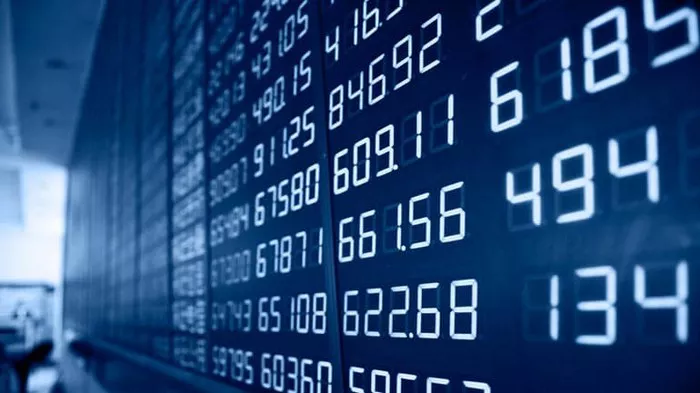Commodity futures exchanges serve as vital marketplaces for the trading of derivative contracts based on various commodities, including agricultural products, energy resources, precious metals, and industrial goods. These exchanges provide a platform for market participants to hedge against price risks, speculate on future price movements, and discover transparent pricing for commodities. While commodity futures trading offers significant opportunities for profit and risk management, access to futures exchanges is subject to certain eligibility requirements and regulatory considerations. This article examines the individuals and entities eligible to trade on commodity futures exchanges and outlines the steps involved in gaining access to these markets.
Individual Traders
Individual traders, also known as retail traders or private investors, represent a significant segment of participants in commodity futures trading. Individual traders can access commodity futures exchanges through brokerage firms or online trading platforms that offer futures trading services. To trade futures contracts, individual traders must meet certain eligibility criteria, including age requirements, financial suitability, and regulatory compliance. While futures trading can be lucrative, it also carries inherent risks, and individual traders are advised to educate themselves about futures markets, risk management techniques, and trading strategies before engaging in trading activities.
Institutional Investors
Institutional investors, such as hedge funds, commodity trading advisors (CTAs), and proprietary trading firms, play a prominent role in commodity futures markets. These institutional investors typically have access to sophisticated trading strategies, advanced technology infrastructure, and significant capital resources, allowing them to execute large-scale trades and capitalize on market inefficiencies. Institutional investors may trade futures contracts directly on commodity exchanges or through third-party brokers and intermediaries. Due to their institutional status and financial sophistication, institutional investors are subject to fewer regulatory restrictions compared to individual traders.
Commodity Producers and Consumers
Commodity producers and consumers, including farmers, miners, energy producers, and manufacturers, often use futures contracts to manage price risks associated with their underlying businesses. For example, farmers may use futures contracts to hedge against fluctuations in crop prices, while airlines may use futures contracts to mitigate exposure to changes in fuel prices. Commodity producers and consumers may trade futures contracts on exchanges to lock in favorable prices for their products or raw materials, thereby ensuring stable revenue streams and protecting profit margins against adverse price movements.
Speculators and Market Makers
Speculators and market makers play a crucial role in providing liquidity and facilitating price discovery in commodity futures markets. Speculators, including individual traders, institutional investors, and proprietary trading firms, seek to profit from anticipated price movements in futures contracts by taking long or short positions based on their market outlook and analysis. Market makers, on the other hand, stand ready to buy and sell futures contracts at quoted bid and ask prices, thereby ensuring continuous trading activity and narrow bid-ask spreads. Speculators and market makers contribute to market efficiency and liquidity by participating actively in futures trading.
Regulatory Considerations
Access to commodity futures exchanges is subject to regulatory oversight by government agencies, such as the Commodity Futures Trading Commission (CFTC) in the United States and the Financial Conduct Authority (FCA) in the United Kingdom. Regulatory authorities establish rules and regulations governing futures trading activities, including eligibility requirements, position limits, margin requirements, and reporting obligations. Market participants must comply with regulatory requirements to ensure fair and orderly functioning of commodity futures markets, protect investors’ interests, and maintain market integrity.
Eligibility Requirements
To trade on commodity futures exchanges, market participants must meet certain eligibility requirements established by regulatory authorities and exchange operators. These requirements may vary depending on the jurisdiction, type of market participant, and nature of trading activities. Common eligibility criteria for trading on commodity futures exchanges include:
1. Registration and Licensing: Market participants, including brokerage firms, traders, and intermediaries, may be required to register with regulatory authorities and obtain appropriate licenses or certifications to engage in futures trading activities. Registration ensures compliance with regulatory requirements and enhances transparency and accountability in futures markets.
2. Financial Suitability: Market participants must demonstrate financial suitability and sufficient capitalization to engage in futures trading activities. Regulatory authorities may impose minimum capital requirements, net worth thresholds, or financial responsibility standards to ensure that market participants can meet their financial obligations and withstand market fluctuations.
3. Compliance with Risk Management Standards: Market participants are expected to adhere to risk management standards and best practices to mitigate potential risks associated with futures trading. This may include implementing risk management policies, procedures, and controls to monitor and manage exposure to market, credit, and operational risks effectively.
4. Market Integrity and Conduct Standards: Market participants must uphold high standards of market integrity and conduct to promote fair, transparent, and orderly trading environments. This includes complying with trading rules and regulations, avoiding market manipulation, insider trading, or other abusive practices, and maintaining ethical conduct in all aspects of futures trading.
Conclusion
In conclusion, access to commodity futures exchanges is open to a diverse range of market participants, including individual traders, institutional investors, commodity producers and consumers, speculators, and market makers. Eligible participants can access futures markets through brokerage firms, online trading platforms, or direct membership with commodity exchanges. However, access to futures exchanges is subject to regulatory oversight, eligibility requirements, and compliance with risk management standards and market integrity rules. By adhering to regulatory requirements, maintaining financial suitability, and upholding high standards of market conduct, market participants can participate effectively in commodity futures trading and contribute to the liquidity, efficiency, and integrity of futures markets.


